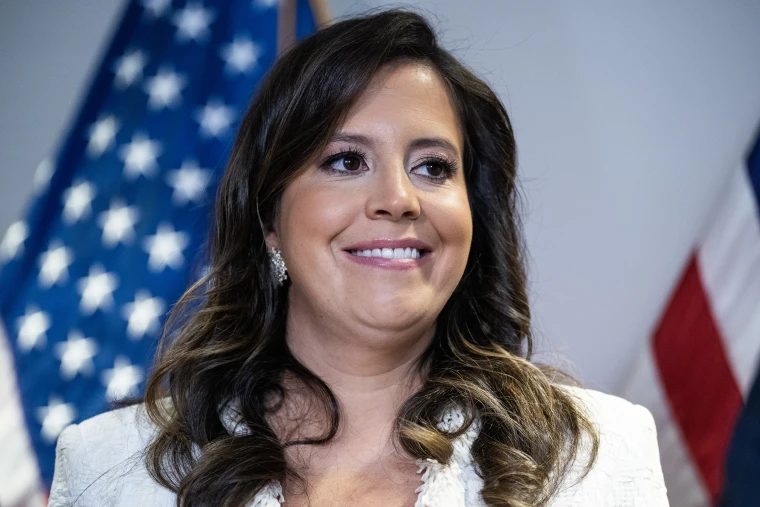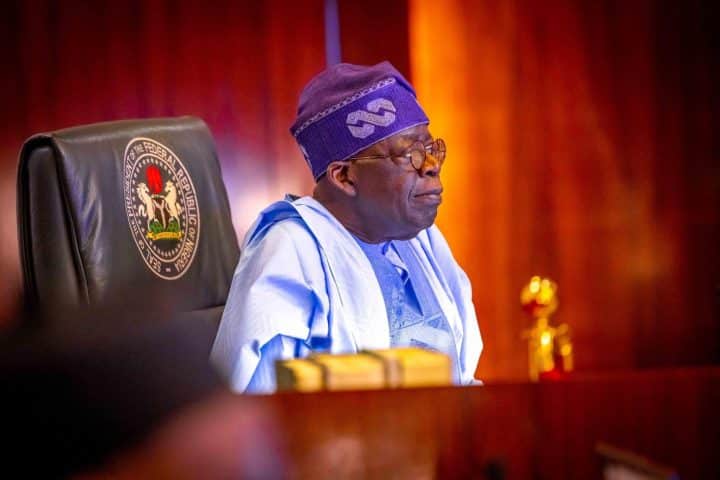Elise Stefanik, a Republican representative from New York, has been nominated by former President Donald Trump as his pick for the role of U.N. ambassador. Known for her fierce loyalty to Trump, Stefanik has played a pivotal role in defending him during his impeachments and supporting his claims about the 2020 presidential election. Her nomination signals Trump’s trust in her ability to represent U.S. interests on the world stage.
Stefanik, 40, first made headlines in 2014 when she became the youngest woman ever elected to Congress at the time. Over the years, she has solidified her position in the Republican Party, becoming the chair of the House Republican Conference. Her influence grew further as she adopted a more vocal stance on issues like antisemitism and U.S. foreign policy.
Join our WhatsApp ChannelHer Political Journey and Shift to Trump’s Circle
Initially perceived as a moderate, Stefanik’s political journey took a dramatic turn. After working with former President George W. Bush’s administration and assisting with Paul Ryan’s 2012 vice-presidential campaign, she entered Congress as a moderate voice. However, her alignment with Trump became clear during his first impeachment in 2019.
By 2021, Stefanik’s role in the Republican Party had grown significantly. She replaced Liz Cheney as the House Republican Conference Chair, a position that allowed her to wield substantial influence. Her decision to echo Trump’s claims of election fraud further entrenched her status as one of his most trusted allies.
Stefanik’s Views on Foreign Policy and the U.N.
Elise Stefanik’s foreign policy views closely align with Trump’s “America First” stance. Her past statements about the United Nations highlight her concerns about antisemitism within the organization. She has criticized the U.N. for its treatment of Israel, even calling it plagued by “antisemitic rot.”
READ ALSO: Interesting Facts To Know About John Ratcliffe, Trump’s Pick For CIA Director
Her active role in addressing antisemitism on U.S. college campuses also underscores her commitment to combating anti-Jewish sentiment. During a December 2023 congressional hearing, she questioned Ivy League university presidents about whether calls for the genocide of Jews violated their anti-bullying rules. The responses she received sparked national outrage and contributed to the resignations of several university leaders.
Impact of Her Nomination on the House of Representatives
If confirmed as U.N. ambassador, Stefanik’s departure would trigger a special election to fill her seat in New York’s 21st congressional district. This move could temporarily reduce the Republican majority in the House, a concern raised by some Trump allies, including Elon Musk, who warned of the risks of losing a key House member.
Democrats have already begun strategizing for the potential special election. Paula Collins, a Democrat who previously challenged Stefanik, has expressed interest in running again. Other Democratic names under consideration include Assemblyman Billy Jones. On the Republican side, possible contenders include State Senator Daniel G. Stec, Assemblymen Robert Smullen and Chris Tague, and conservative activist Joe Pinion.
What’s Next for Elise Stefanik?
Stefanik’s nomination will require Senate confirmation, a process that could spark intense debate. Her critics argue that she lacks the foreign policy experience typically expected of a U.N. ambassador. While she has served on House national security committees, her opponents contend that she is being rewarded for political loyalty rather than diplomatic expertise.
If confirmed, Stefanik would represent the U.S. at the U.N., where her firm stance on Israel and her confrontational approach to antisemitism would likely shape her tenure. Her support for taking a hard line on China and her recent shift on U.S. aid to Ukraine indicate the issues she may prioritize.
Elise Stefanik’s path to becoming Trump’s pick for U.N. ambassador reflects a broader shift in Republican politics. Her rise from moderate congresswoman to a key Trump ally shows how political loyalty can open doors to prominent roles in government. Her next challenge lies in the Senate confirmation process, where she will face scrutiny over her qualifications and approach to global diplomacy.
Emmanuel Ochayi is a journalist. He is a graduate of the University of Lagos, School of first choice and the nations pride. Emmanuel is keen on exploring writing angles in different areas, including Business, climate change, politics, Education, and others.




















Follow Us